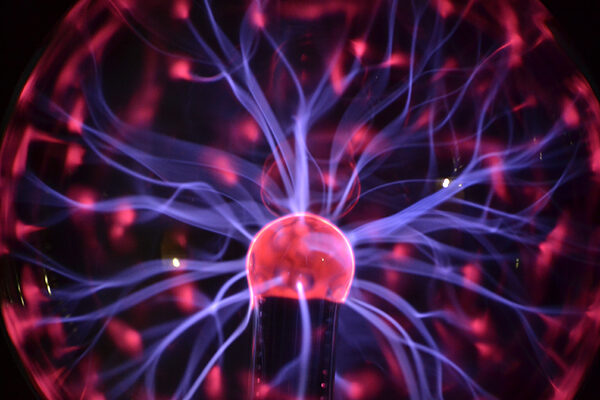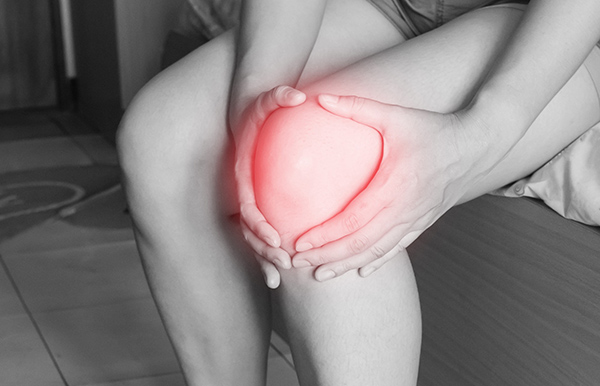
From time to time people ask me what health conditions qigong is good for improving, both in the context of qigong exercises and also clinical qigong treatment. The short answer to this question is absolutely everything… but if you are familiar with my work you will know that I am a strong proponent of viewing things in a practical and realistic way – including qigong. So there is a bit of context to understand how qigong can be good for absolutely any type of health issue someone may face, to keep this in the right perspective and apply it in a healthy way within our lives.
I had such a conversation recently at a social gathering over the holiday period, and in this article I will share the analogy I used in that conversation to explain how widely beneficial qigong can be for all sorts of health issues, while also putting this potential benefit in practical and realistic context. I will then go on to also examine some of the areas that qigong is particularly useful for addressing in comparison to other types of approaches or therapies.
If you would prefer to watch a video or listen, there is a vlog on this same topic at the bottom of this page:
Qigong and Nutrition
To describe how qigong can be helpful for absolutely any type of health condition, I compared it to the food we eat. The nutrition we get from our diet has a foundational influence on our overall health, and can also make a big impact on specific health conditions. If you have even a little knowledge of nutrition, and you think about any given health condition – from immune conditions, to inflammatory diseases, to hormonal problems, to nervous disorders, to heart problems, to degenerative disorders, to digestive issues, anything you can think of – even physical injury, can be improved through good nutrition.

We Always Heal Ourselves
To understand why this is so, we need to understand the nature of true healing. While all manner of treatments and therapies can be of assistance in addressing different health conditions, ultimately true healing comes from within – it is done by ourselves. You can take a medication that will have an influence on the chemistry inside your body, but unless your body then makes use of those changes this won’t necessarily lead to cellular repair and result in health – the external stimulus of the medication creates an opportunity for the body, but the actual healing needs to come from within. Even in the extreme case of surgery, where the external stimulus actually makes physical changes to the structure of the body – this will not lead to healing by itself. The body still needs to heal around the surgery and integrate the physical changes made into its system in order for health to result from the physical changes that have been made.
When we work with nutrition we create the chemical conditions inside the environment of our body which makes it easier for it to make needed changes, and more importantly we also give our body what it needs to do the healing for itself – and this can help with absolutely ANY type of health condition that we might face.
Realistic Expectations
I think at this point it is important to clarify some realistic expectations around the type of benefits that we might be able to achieve from changing our diet. If your diet and nutrition is not good – then addressing this issue may result in remarkable changes to your overall health and vitality. If there are specific glaring issues with your nutrition – then remedying them may completely heal health issues that you may have. And, for very specific health conditions, using very specific nutritional intervention may give you exactly what you need to allow your body to heal itself.
However, there are also many situations where you may already have a healthy diet, but health conditions still occur. Or when addressing specific health issues, working with your diet and nutrition may be a great help, but not all that is needed to resolve the condition fully. Having a healthy diet sets a foundation for good health overall, but this does not mean that it is the only thing that is needed for health. Sometimes we may need to make other changes to our environment or lifestyle to create the conditions needed for healing, and in addressing specific health issues, other specific therapies, medications and so on may be needed to give this assistance the body requires for healing. But in any of these situations, you will be far better off having a healthy diet and the specific nutrition you need, than not having them. Nutrition may not be sufficient by itself to address the health issues you face, but it will certainly help, and give you a good basis for ongoing health in the longer term as well.
How Does Qigong Work?
To understand how this analogy compares to how qigong can help with different health issues, we need to have some understanding of how qigong works. At its core qigong works with three main tools – the mind, body, and breath, bringing all of these into harmony with one another to direct the living energy that flows within each of us. As part of these practices we may also sometimes focus on interacting with different types of energy in the environment around us as well, but focusing on these three aspects of our qigong practice is sufficient to understand just how broadly it can benefit us.

The key is really in how working with these aspects of our being helps us to connect to our living energy, and what that energy is. Our body of course has many types of energy that flows through it. Electrical activity from the signals of our nerves and functions of our cells, heat from cellular respiration that facilitates chemical reactions, and of course physical movement, vibration, pressure and tensions from the activity of muscles and organs and the movement of blood and other fluids through our bodies. Each of these types of energy needs to flow freely and in the right proportions to bring and maintain health to all of the tissues of our bodies. And of course the physical matter of our body is itself a form of energy. Our mind plays a major role in directing the flow of these energies, and we think and perceive in different ways we activate organs and hormones, and change the posture of our body in ways that can be beneficial, or ways that may be detrimental to us, contributing to either our good health or the emergence or persistence of states of disease within us. We can often be unaware of just how much we are directing different patterns of energy flow within our body through how we use our mind. Our breath is a unique function of our body in that it crosses the bridge between conscious and unconscious control, making it a particularly powerful way for us to start to become aware of and direct more consciously things that otherwise occur within us unconsciously. This allows us to unite mind and body together and become more directly aware of what is happening with our energy, and to start to direct this energy in more healthy and useful ways.

So qigong allows us to tap into how the natural functions of our body are operating, and to bring these into harmony with one another. Just like nutrition, this acts as a great base for overall health and wellbeing, and as we become more and more aware of the energy that flows through us, we can direct it in more specific and beneficial ways to potentially address specific health issues as well. In a way, because qigong taps into our ability to direct what our body does internally both consciously and unconsciously, it goes even further than nutrition in its general applicability to helping with different health issues – because it doesn’t just make changes to what is available to us internally, but also directs how we use them, potentially even influencing our ability or tendency to actually do the healing required.
Just as we may use nutrition in different ways, we may also use our qigong practice in different ways to work with our health. At the very least, practicing regularly can bring the internal harmony that we need to maintain ongoing good health and vitality – but we may also choose to do focused practice to help with different specific health issues. Also just as nutrition alone will at least be helpful but may not be enough to resolve every health issue you face, qigong will certainly be helpful for any health condition you wish to address, but it is wise to look at all the different tools and therapies available to you to work together to achieve your desired outcome.
Clinical Application of Qigong for Health
You can get many benefits from simply practicing qigong by yourself, or perhaps in a group or in a class setting, but for more challenging health issues there can be great value in seeking out the assistance of a clinical qigong practitioner.

There are two main ways that qigong can be used in a clinical setting for therapeutic benefit. The first is simply in the prescription of specific exercises and practices of most benefit in helping with the issue in question. Again you could compare this to going to a nutritionist. In most situations people are able to figure out what a generally healthy diet is for themselves from general common sense, reading books, and even their own instinct, but when they have a specific issue it can be helpful to go to someone with more specialized knowledge (a nutritionist) to give them the specific advice they need to address their issues. This may even involve doing tests or other form of assessments, and taking many factors into consideration in coming up with a ‘prescribed’ diet to best meet their needs and address the health issue. A clinical qigong practitioner can use their knowledge and experience to recommend specific qigong practices to address specific health issues in a way that goes beyond simply practicing for general good health and balance when needed.
The second way that qigong can be used in a clinical setting is by working directly with the energy to make changes to its quality and flow. It takes some practice and experience to develop this skill, and it can be very effective at helping to make changes within someone’s energy system beyond what they may be able to easily do for themselves. You could compare this to conducting physical massage or manipulation of the body, or even possibly to surgery – where rather than recommending something for the person to do for themselves, the clinical qigong practitioner is doing something to them to help create the change they need to resolve their health issue. Sometimes the required intervention in the energy system is quite subtle and gentle, other times it may need to be quite strong. But either way, just as with taking medications, or receiving surgery – in the end the healing is still done by the individual. The clinical qigong practitioner can do a lot to remove what may be obstructing the healthy flow of energy needed for good health, or to direct the persons energy resources to flow in more beneficial and balanced ways, but the ultimate healing is done by the individual as they then maintain those changed patterns and conditions within them and create their own self sustaining flow of healthy energy.
Health Issues Qigong is Particularly Good For
At this point I hope it is clear why qigong can be useful in resolving literally any kind of health issue that may arise, but it may be helpful to also consider which kind of health issues qigong may be particularly useful in working with.
Many health issues can be addressed effectively with very simple and direct interventions. To continue with our comparison with nutrition – if someone has a deficiency of a specific mineral or vitamin, then often simply making sure sufficient foods with that nutrient in it, or even supplementing that nutrient will address and resolve the issue. Similarly, if someone is suffering from exposure to some type of toxicity, then protecting them from exposure to it in their environment, and removing it from any food or liquid they may ingest will often be enough to allow the body to then process and rid itself of the toxin and resolve any associated health issues.
Other health issues may be the result of physical trauma, in which case putting a broken bone in a cast, strapping up a limb with strained ligaments, or in the extreme conducting surgery to join damaged tissues back together may be all that is needed to then allow the body to do the rest of the healing that it needs to by itself.
To address another area of our health, some health issues have a very strong psychological drivers behind them, and when these psychological factors are addressed, the main causative factor is eliminated, and the rest of the healing can occur without further intervention.
In any of these situations – qigong may still be helpful in supporting the healing process, but the issue is able to be resolved through a simple and direct therapy or intervention that addresses the main root cause of the health issue. However, many health issues are not so simple, they often involve many different factors which combine together to result in the health condition.
A health issue may have a strong influence from both the body and the mind. When this happens – addressing just one of these areas will often be ineffective in resolving the issue. Working with just the body will be ineffective because even when progress is made, the psychological component of the issue undermines that progress and recreates the dysfunctional conditions within the body and environment. Similarly working with just the mind will be ineffective because without the physical support that is also needed, the psychological changes cannot be maintained.

Because qigong focuses on working with the energy, which sits at the intersection between the mind and body, it can often be effective in creating and maintaining changes that have proved challenging to achieve through focusing on just the physical or the psychological alone. When working with the energy we have an effect on both of these aspects of our being at the same time, sometimes leading to more sustainable progress in addressing an issue.
So while clinical qigong therapy can be useful for potentially any kind of health issue, where it excels and confers benefits beyond other types of therapies, is in addressing issues that have both a physical and psychological component contributing to it. This is often not clear at the onset of a health issue, but becomes apparent once a variety of different approaches have been tried and been unsuccessful in addressing it.
Going Beyond Simple Good Health
Of course qigong can do much more than simply address health issues. Creating good health was just one of the three main applications of qigong historically. It can also be used to go beyond plain good health to also reaching new levels of peak performance. The subtle awareness of the interconnection between the mind and the body, and the power of focusing on the quality and flow of energy through our system for finetuning our performance, makes qigong a powerful tool for anyone wanting to achieve at high levels in their chosen field of endeavour. Historically qigong was used to enhance the abilities of people engaged in many different types of pursuits, most notably the martial arts (kung fu) with the high demands they place on practitioners.
Qigong was also used historically as part of many spiritual traditions as the increased perception developed through qigong practice, and the subtle awareness of interconnectedness that flows through all qigong practice proved beneficial to those on a path of enlightenment.
Qigong is equally applicable to these areas in our modern world. It can certainly be used as a basis for developing good health and as part of addressing any health issues someone may have, but this is really just a starting point. Qigong can be a path to so much more, giving positive benefits in every area of our lives.
2 Comments. Leave new
John, this article is spot on. As someone with fibromyalgia, a chronic pain condition, I find Qigong and meditation invaluable. I do my best to practice, whether long or short, every single day. I do not think I would feel as good as I do without it. By incorporating proper nutrition, proper movement, proper sleep and the mitigation of stress there is a symbiosis and alignment. If I do not focus on these things I am completely out of balance. Your teachings have been good “medicine” for me. I am entering my 9th year with you, which is hard to believe. Thank you for your commitment with Long White Cloud Qigong.
I am delighted to report that daily practice of qigong significantly helped my high blood pressure allowing me to come off BP medication with the support of my GP. I would always do some qigong breathing before having my blood pressure checked at medical appointments and this helps too. This is only one example, of many, where qigong has helped me be a healthier person.